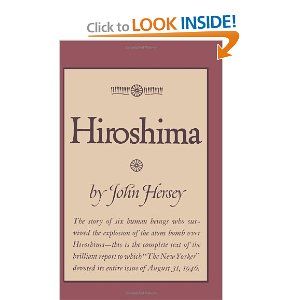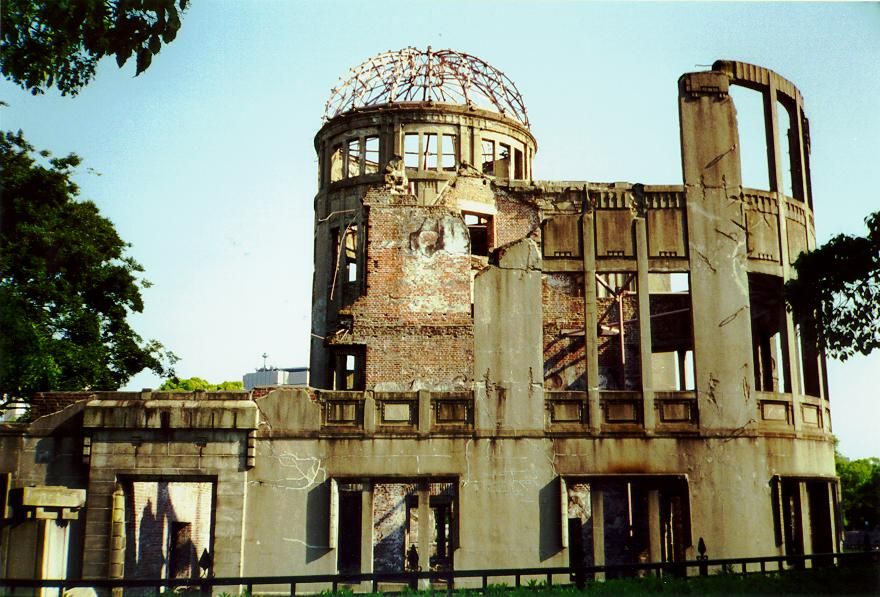August 9, 2010 - A Hiroshima Memorial
Featured Trades: (HIROSHIMA ANNIVERSARY)
4) A Hiroshima Memorial. Friday was the 65th anniversary of the Hiroshima atomic bomb, an event that that has touched me in many ways.
I never had any doubt for the need to use the bomb in 1945. My father had orders to join his third marine division in Okinawa for the invasion of Japan when it was dropped. If the plan had gone ahead, I would not be writing this letter today. My biochemistry major and math minor at UCLA landed me a summer job as a research assistant at the Nevada nuclear test site in the late sixties where I got to know the men who worked with Dr. Robert Oppenheimer to build the bomb. There, 'yields' meant millions killed, not interest paid.
When I first landed in Japan, I made a beeline straight to the Atomic Bomb Victims Hospital to interview survivors 30 years after the attack. I listened to stories about people vaporized, but whose image was etched into solid granite, and the rivers that were choked with countless bodies. Textile patterns were permanently burned into human skin, the light colors reflecting radiation, while dark ones absorbed it. Some 50 of the city's 150 doctors were killed instantly, and the rest were seriously injured. They were futilely left to treat gamma rays and beta particles with only mercurochrome, or traditional Japanese folk remedies like moxabustion. Tens of thousands showed up at hospitals with no visible injuries, only to die agonizing deaths within the day.
Two weeks after the bomb, everyone's hair started falling out and immense welts called keloid tumors appeared, classic symptoms of then unknown radiation poisoning. American scientists descended on the city by the hundreds measuring every imaginable parameter with grim precision, such as the heat at ground zero that reached an unbelievable 6,000 degrees, and the melting of ceramic roof tiles to a radius of 1,300 yards. They told the Japanese that no one could live there for 20,000 years. The residents ignored them and moved back in to rebuild as soon as the fires abated.
I met one spry Japanese American woman who grew up in Fresno, California and spoke perfect 1930's English, but was sent home to Hiroshima to avoid the war. I'll never forget the massive scars on her forearms where her summer yukata cut off. A barking dog caused her to briefly look away from the curious descending parachute from a lone B-29 overhead, thus saving her face and her eyesight. Her three young children didn't make it.
For me the experience converted an interesting physics experiment into the greatest source of human misery of all time. As the years went on I met many more Hiroshima survivors, known as bakusha, who after a third shot of Suntory whiskey would talk about the artificial weather the bomb created, the gale force winds and the black rain. Every type of plant strangely flourished after the bomb, but men and women were left sterile, and birth defects skyrocketed. In later years I attended memorial ceremonies where 140,000 candlelit paper boats were placed in the Motoyasu River at night to symbolize the lost souls.
Ironically, those who survived the bomb now have the greatest lifespan of any group in Japan. I guess that if you can survive an atomic bomb, you can handle anything. I'm sure free health care for life and pensions helped too. There was also that one dose of radiation treatment, courtesy of the US government.
Today Hiroshima is a major focus of international pacifist and disarmament groups. The effort is being led in the US by former secretary of state, George Schultz, who has played a key role in cutting American nuclear stockpiles by 75% to 5,113 today. Some 20% of America's nuclear power is currently generated by plutonium from recycled warheads from the former Soviet Union.
You can learn more about his efforts by visiting the Plowshares Fund at http://www.ploughshares.org/ .To buy John Hersey's Pulitzer Prize winning Hiroshima, which describes the doomed city immediately after the attack in all its horrific detail, please click here. It is not a light summer beach read, but is enlightening and sobering.


